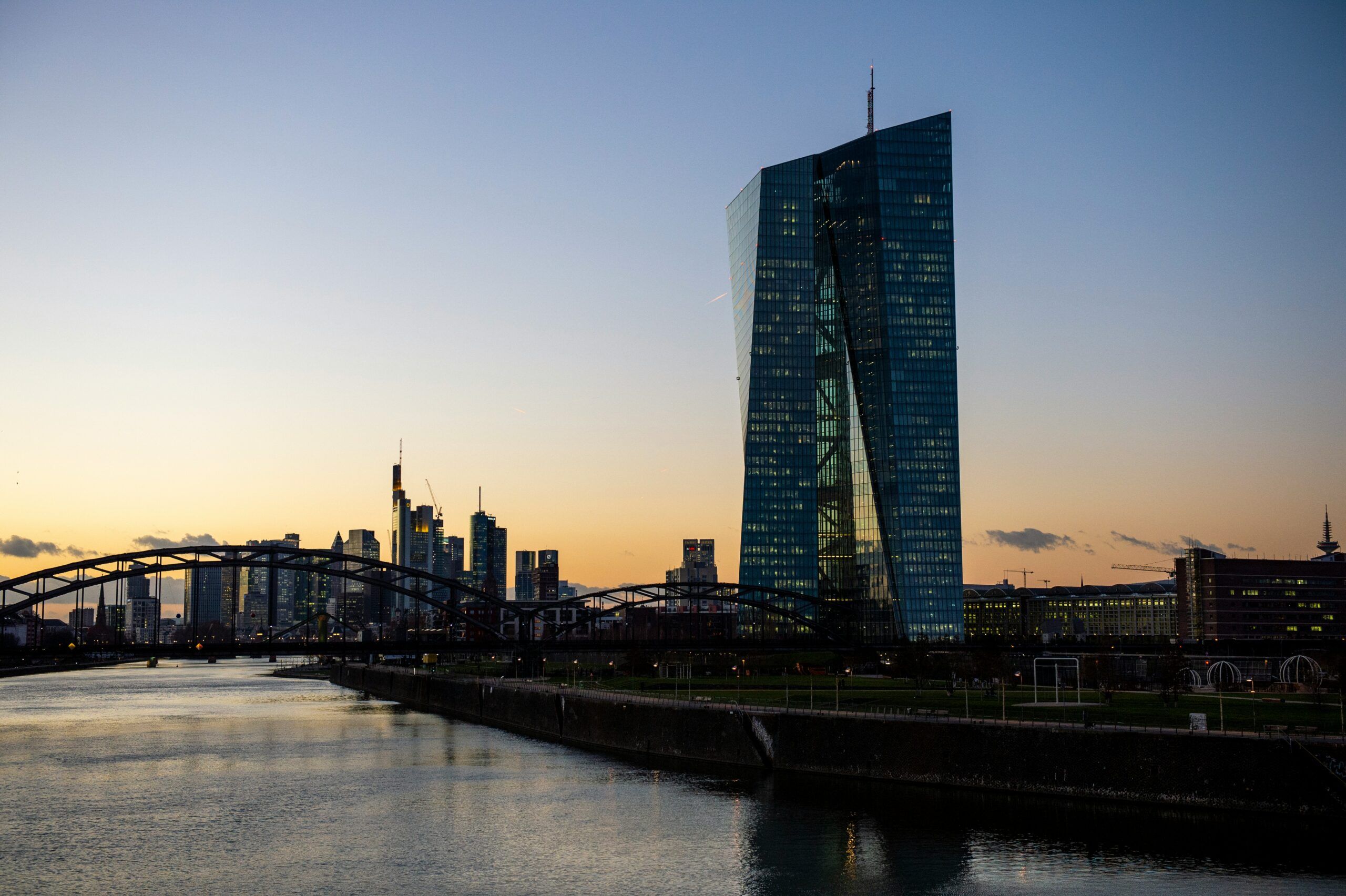
ECB Holds Interest Rates Steady
There were no surprises for financial markets as today and for the second meeting in a row the ECB, (European Central Bank) kept their key deposit rate unchanged at 2%. Officials at the ECB advised that inflation was under control and any economic pressures were abating but remained tight-lipped on future policy decisions. Experts suggest that investors have concluded that rate cuts have now come to an end with the President of the ECB Christine Lagarde announcing that “inflation is where we want it to be.”
Between June 2024 and June 2025, the ECB has halved its key deposit rate and has been held at 2% with President Lagarde going on to say, “We continue to be in a good place”. Policymakers advise that the central bank see inflation falling below their benchmark target of 2% in 2026 with President Lagarde saying, “risks were more balanced” and adding “ Two things have clearly moved out of our radar screen when it comes to downside risk, the first one is risk of European retaliation the second thing… is that trade uncertainty has clearly diminished.
Interestingly the ECB also sees headline inflation hitting 1.9% in 2027 which is below their projected figure as advised in June of this year with core inflation hitting the 1.8% mark which is also below the ECB’s predicted target of 2%. When questioned on the discrepancies President Lagarde said, “We have indicated very clearly in our strategy that minimal deviations, if they remain minimal and not long-lasting, will not justify any particular movement”. Experts say that financial markets are pricing in only a 40% chance of a further rate cut by Q2 2026, this despite their predictions that the United States Federal Reserve will cut interest rates six times by the close of business 2026.
With regards to tariffs and after weeks of heated negotiations the EU (European Union) and Washington finally arrived at a trade agreement in late July of this year with an agreement of a blanket tariff on most exports including cars to the USA of 15%, half of the original 30% imposed by President Trump. In return the EU agreed to purchase USD 750 Billion’s worth of U.S. energy and invest an additional USD 600 Billion worth of investment into the USA above current levels. President Lagarde noted that uncertainty about global trade has eased after a number of tariff deals including that of the EU.
One problem that looms large for the ECB is the parlous state of French politics and their economy which has pushed French bond yields increasingly higher. Experts say that whilst the ECB has the financial muscle to intervene it is only when unwarranted and disorderly rise in borrowing costs. When questioned on the point President Lagarde said that the Euro Zone sovereign bond markets were orderly and functioning with smooth liquidity. The word coming out of the ECB as described by some experts is that they feel rates are appropriate to cope with the fallout from President Trump’s tariffs, the current geopolitical tensions and any upcoming political and economic tensions in France.

Other facilities
IntaCapital Switzerland | Copyright © 2025 | All Rights Reserved